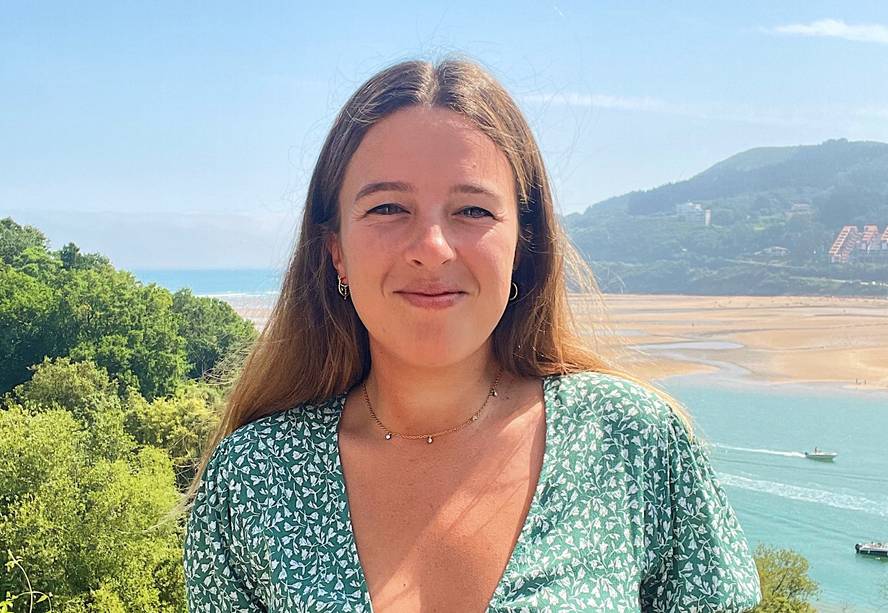"In Environmental Sciences I saw the possibility of touching several topics of my interest"
Jone Bilbao Antoline was the winner of the latest competition for thyosis in the category of the most understandable thyothesis. He acknowledges that from the beginning it was meant to be understandable “because I have never been original”. It seems to him that researchers are very clear about what they do, but those around them don't usually have many clues. "So, my intention was to explain what I did and why. And where, in my case, space is very important.”
This place is Urdaibai. There he's been researching for three years, and now he's going to do the fourth. In his thesis, he has only described a small part of the research and data and results obtained during that time, but it seems important to explain what is being done so that the stranger also understands that world.
For Bilbao itself, the path that led it to investigate in Urdaibai has been quite natural or direct. "I'm from Sopelana, so I've always had a close relationship with nature, especially with the sea and the beach. It is true that when you have to choose the studies you don't have the clear things, and I wasn't clear from the beginning that I wanted to study Environmental Sciences. But there I saw the opportunity to study things that I liked: it wasn’t pure biology, it wasn’t chemistry… And I’ve always been interested in living things, but also in pollution, weather phenomena, etc. And I saw it in Environmental Sciences to touch them all."
In addition, his interest in working to improve the environment led him to study this career and, once in it, he became interested in topics such as ecology and pollution analysis. "This led me to Plentzia to do the Master in Environmental Pollution and Toxicology, and from there I stayed at Urdaibai doing the thesis."
He works in the plant plankton laboratory and from the beginning he feels at ease in the group: "Now we are more, but when I entered the group it was very small and welcomed me very well. Then the group has been growing and I am very comfortable with everyone. For me it is important, after all, you have to always go with someone to the samplings. Sometimes I’ve gone with the students, sometimes with colleagues or the director… but it’s always a teamwork.”
This paper analyzes the situation of Urdaibai. Bilbao has seen this: "People see as a paradise. But I've sometimes found it very dirty, and sometimes it's for natural reasons, like rains, but many others don't. And it is true that with the changes that have taken place in the treatment of waste water an immediate improvement has been detected. Yes we, in the results, but also those who went through there, because it was obvious. You can see it in the smell itself."
He explains that the wastewater treatment plan was approved in 2017, in which URA and the Busturialdea Water Consortium were to build the sanitation network and build the infrastructure connecting with the Lamiaran treatment plant in Bermeo. The works have not been carried out overnight, but from 2021 onwards the fecal waters of Gernika-Lumo and surroundings are moved to the Lamiaran sewage treatment plant for treatment prior to their discharge into the sea. This prevents them from reaching the estuary.
Conclusions in view
Bilbao highlights its conclusions: "The main objective was to resolve the summer manifestations of faecal waters on the beaches of Urdaibai. But in our research we have seen that it has brought other clear benefits. For example, the concentration of maramo and phosphate has decreased considerably, as have organisms that dominate dirty waters.”
It also talks about funding. In fact, the hardest part of the research is getting funding, and at first Bilbao says it also cost them a lot. "The first year of sampling we did it without any funding. After that year, when we got the first results, we already got the support of URA and the Busturialdea Water Consortium. We also collaborated with AZTI… So, now, but at first we saw how important it was to measure the benefits of infrastructure works that would cost so much money, but we didn’t get help.”
Now, as happened in Bilbao, they want to set up a recognition programme and hope to move forward.







